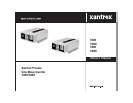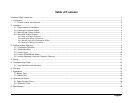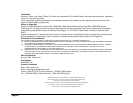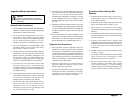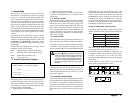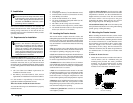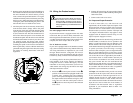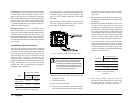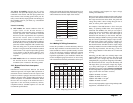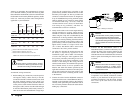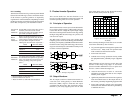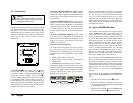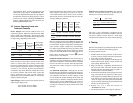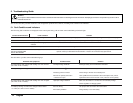
English 1
Important Safety Instructions
General Safety Precautions
1. SAVE THESE INSTRUCTIONS. This OWNER’S
MANUAL contains important safety and operating
information for the Prosine Inverter.
2. Do not expose the Prosine Inverter to rain, snow,
spray, bilge or dust. To reduce risk of fire hazard,
do not cover or obstruct the ventilation openings.
Do not install the Prosine Inverter in a zero-
clearance compartment. Overheating may result.
3. Do not use attachments not recommended or sold
by Xantrex. Doing so may result in a risk of fire,
electric shock, or injury to persons.
4. The Prosine Inverter is designed to be permanently
connected to your DC electrical systems (and for
hardwire versions, permanently connected to your
AC electrical system). To ensure adherence to
proper electrical wiring regulations all wiring must
be done by a certified technician or electrician.
5. To avoid a risk of fire and electric shock, make
sure that existing wiring is in good electrical
condition; and that wire size is not undersized. Do
not operate the Prosine Inverter with damaged or
substandard wiring.
6. Do not operate the Prosine Inverter if it has received
a sharp blow, been dropped, or otherwise damaged
in any way. If the Prosine Inverter has been
damaged, refer to Section 6 of this manual.
7. Do not disassemble the Prosine Inverter; refer to
Section 6 of this manual for instructions on
obtaining service for the Prosine Inverter.
Attempting to service the unit yourself may result
in a risk of electrical shock or fire.
8. To reduce risk of electrical shock, disconnect the
DC power (and AC power if applicable on hardwire
versions) from the Prosine Inverter before
attempting any maintenance or cleaning or working
on any equipment and circuits connected to the
Prosine Inverter. Turning off controls will not reduce
this risk.
9. Grounding: The Prosine Inverter must be provided
with an equipment-grounding conductor connected
to the AC input ground terminal. Grounding and
all other wiring must comply with local codes and
ordinances.
10. For marine applications, special installation codes
may apply. For example, in the U.S., the installation
shall comply with the United States Coast Guard
Electrical Regulations (33CFR183, Sub part 1).
Explosive Gas Precautions
1. This equipment contains components which can
produce arcs or sparks. To prevent fire or explosion
do not install in compartments containing batteries
or flammable materials or in locations which require
ignition protected equipment.This includes any
space containing gasoline-powered machinery, fuel
tanks, or joints, fittings, or other connection between
components of the fuel system.
2. Working in the vicinity of a lead-acid battery is
dangerous. Batteries generate explosive gases
during normal battery operation.
3. To reduce the risk of battery explosion, follow these
instructions and those published by the battery
manufacturer and the manufacturer of the
equipment in which the battery is installed.
Precautions When Working With
Batteries
1. Someone should be within range of your voice or
close enough to come to your aid when you work
near a lead-acid battery.
2. Have plenty of fresh water and soap nearby in case
battery acid contacts skin, clothing, or eyes.
3. Wear complete eye protection and clothing
protection. Avoid touching eyes while working near
batteries.
4. Clean battery terminals before making connections.
Wear eye protection to keep corrosion from coming
in contact with eyes.
5. If battery acid contacts skin or clothing, wash
immediately with soap and water. If acid enters eye,
immediately flood eye with running cold water for
at least 20 minutes and get medical attention
immediately.
6. NEVER smoke or allow a spark or flame in vicinity
of battery or engine.
7. Do not drop a metal tool on the battery. The resulting
spark or short-circuit on the battery or other
electrical part may cause an explosion.
8. Remove personal metal items such as rings,
bracelets, necklaces, and watches when working
with a lead-acid battery. A lead-acid battery
produces a short-circuit current high enough to weld
a ring or the like to metal, causing a severe burn.
WARNING
Before you install and use your Prosine
Inverter, be sure to read and save these safety
instructions.
Xantrex Prosine Inverter Owner’s Manual



